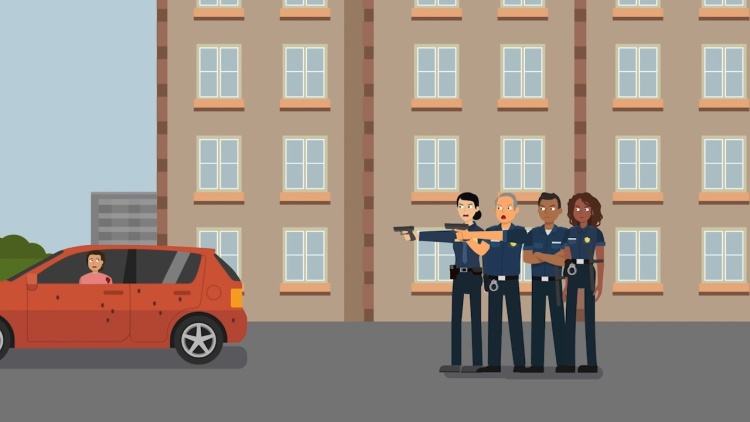Torres v. Madrid
United States Supreme Court
141 S. Ct. 989, 209 L. Ed. 2D 190 (2021)
- Written by Liz Nakamura, JD
Facts
While approaching an apartment building to execute an arrest warrant for a different person, four New Mexico police officers (defendants), including Officer Janice Madrid (defendant), spotted Roxanne Torres (plaintiff) in the parking lot. The officers knew Torres was not the subject of the arrest warrant. Torres, who was coming down off a methamphetamine high, got into her car when the officers approached and attempted to speak with her. After the officers attempted to open Torres’s car door, Torres hit the gas to escape, believing the officers to be carjackers. As Torres fled, the officers fired a total of 13 shots at Torres’s vehicle. Two of the shots hit Torres. Torres successfully escaped the encounter but was later arrested and charged with aggravated fleeing from a law-enforcement officer, to which she pleaded no contest. Torres later sued the officers under § 1983 of the Civil Rights Act, arguing that the officers’ use of excessive force violated her Fourth Amendment protections against unreasonable seizure. The district court granted summary judgment to the officers. On appeal, the Tenth Circuit affirmed, holding that Torres’s escape from the officers after being shot negated her Fourth Amendment excessive-force claim. Torres appealed.
Rule of Law
Issue
Holding and Reasoning (Roberts, C.J.)
Dissent (Gorsuch, J.)
What to do next…
Here's why 904,000 law students have relied on our case briefs:
- Written by law professors and practitioners, not other law students. 47,100 briefs, keyed to 995 casebooks. Top-notch customer support.
- The right amount of information, includes the facts, issues, rule of law, holding and reasoning, and any concurrences and dissents.
- Access in your classes, works on your mobile and tablet. Massive library of related video lessons and high quality multiple-choice questions.
- Easy to use, uniform format for every case brief. Written in plain English, not in legalese. Our briefs summarize and simplify; they don’t just repeat the court’s language.





